The one who is considered the first Roman writer in history was born in Taranto around the year 284 BC. and he was Greek. Taranto was a Greek colony in Magna Graecia (the southern Italian peninsula) that had asked King Pyrrhus of Epirus for help in his fight against Rome. However, the defeat of this and the delay in the arrival of the Carthaginian fleet that came to the aid of the city, caused the surrender in the year 272 BC
Among the captive citizens made slaves by the Romans and sent to Rome was a boy of about 14 years old named Andronicus. He entered to serve in the house of a family of the gens Livia, where he became the teacher of the children of his master, something that served him to achieve freedom.
As a freedman he adopted the name of his patron and protector, becoming known as Lucius Livius Andronicus (Lucius Livius Andronicus). He was not only the first Greek teacher in Rome, but in time he would also become the first Roman writer and the founder of Roman epic poetry.
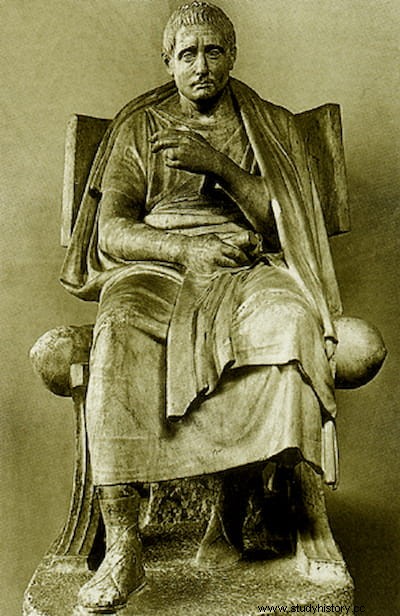
He began writing by translating Greek works to use as textbooks at the school he had founded, in which he taught Latin and Greek to young patricians. Then, according to Cicero, around the year 240 B.C. he was commissioned by the curule aediles (officials in charge of organizing games and festivals) to write a comedy (or a tragedy, it is not known for sure) to be performed at the ludi scaenici (theater festivals) celebrated on the occasion of the victory in the First Punic War. It is the first known play written in Latin. He himself was in charge of representing her as an actor.
That is why Varrón, Cicero and Horace considered Livio Andronicus to be the creator of Latin literature and the first Roman poet whose name is known.
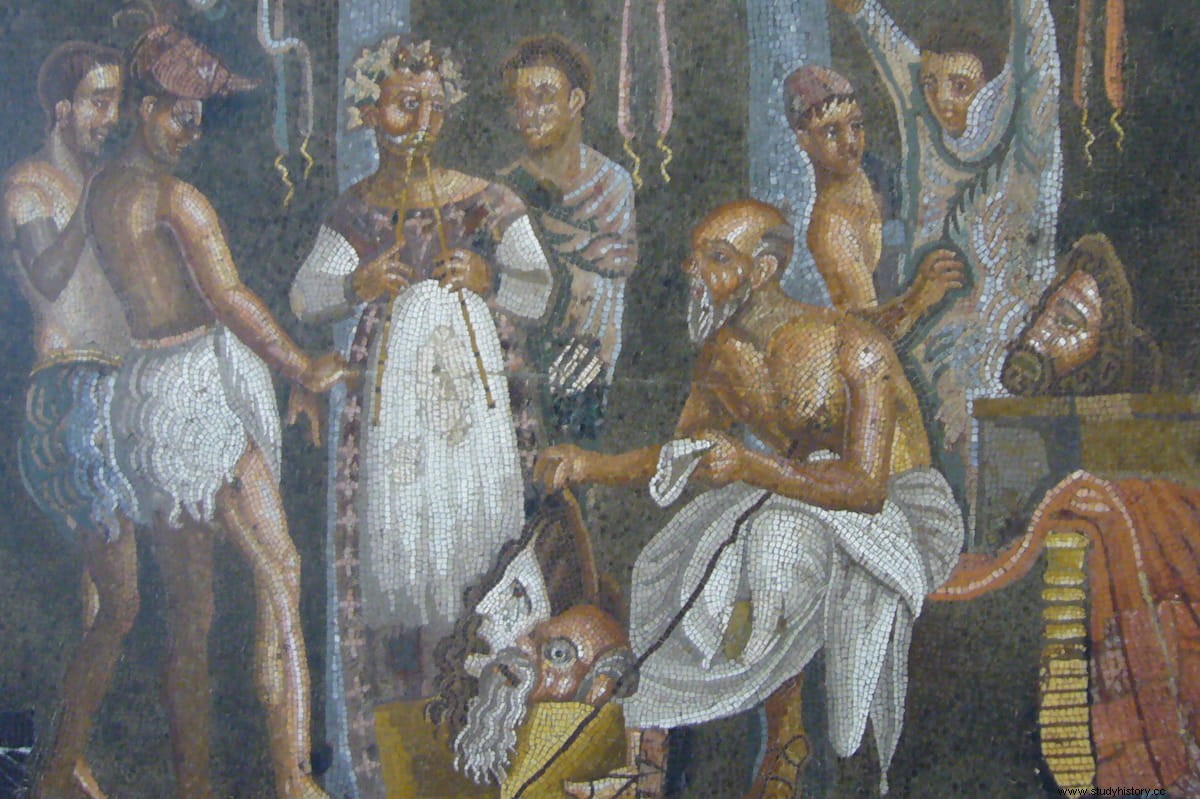
When Hasdrubal arrived to help his brother Hannibal in 207 BC, during the Second Punic War, Andronicus was commissioned by the pontiffs and the Roman Senate to compose a hymn to Juno that would allow them to stop the Carthaginian advance. The anthem was sung in a solemn procession of the Vestals and was a complete success.
In addition, the consul Marco Livio Salinator (curiously Andronicus's patron) achieved victory in the battle of the river Metaurus, for which the Senate granted Andronicus great honors, including being able to live in the temple of Minerva on the Aventine hill.
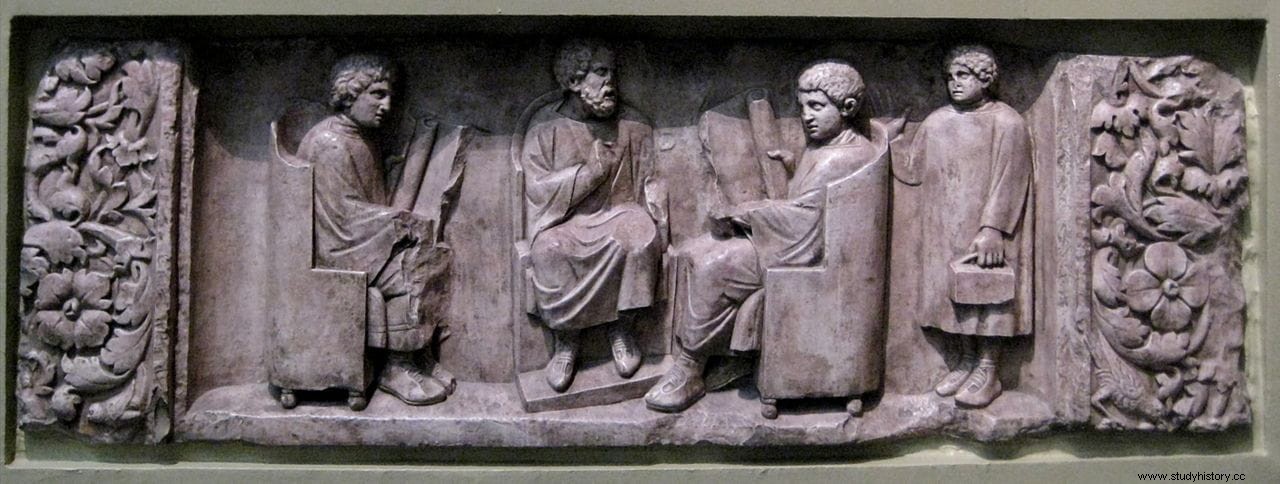
Unfortunately, none of his works have survived to this day. We barely keep a hundred scattered verses and quotes in works by later authors. What is known is that he spent the last years of his life translating the Odyssey, to teach his students to compare it with the original Greek text.
Only about 36 fragments of it have been preserved, but even so, it constitutes the first literary testimony of the Latin epic. Andronicus titled it Odusia and he had to make important lexical, syntactic and metrical choices to adapt the text to the Latin culture and the Roman religion.
He used in the translation a compound language, in which copies of Greek terms are mixed (such as the title Odusia ) together with Latin terms of the Roman religion. He replaced all the names of the original Greek deities with Roman gods, establishing the bases of the correspondences between both pantheons:Cronos became Saturn, Hermes became Mercury and the Muses were equated with the Camenas (nymphs that inhabited fountains and springs) .
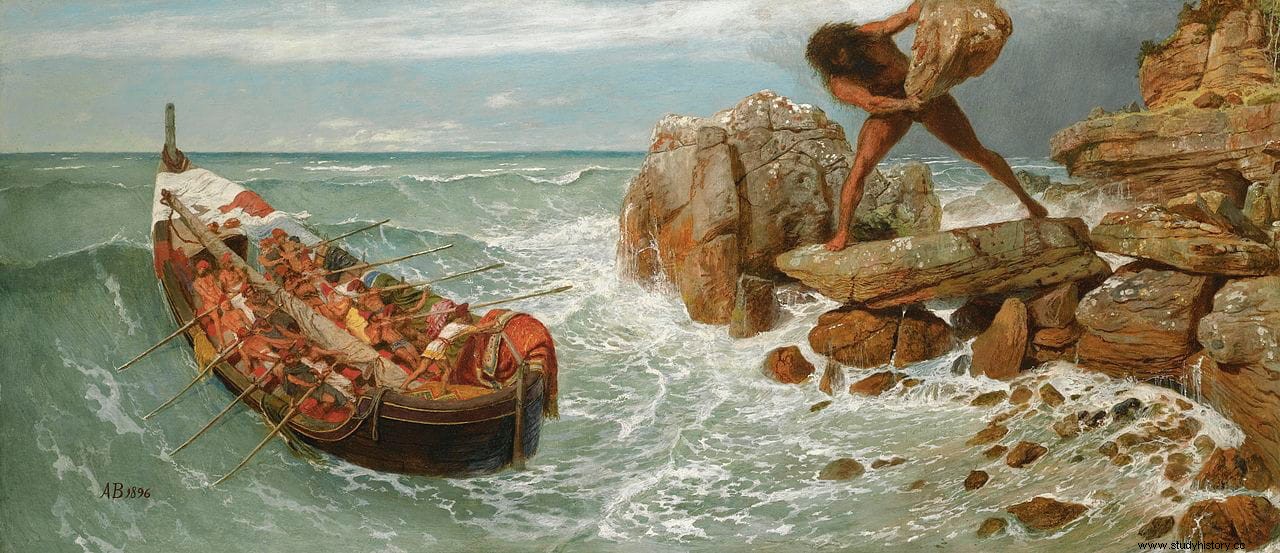
One of the important decisions that he had to make has to do with the problem of the name of the protagonist, Odysseus. Odysseus derives from the Greek verb ὀδύσσομαι (odýssomai ) which means hate . Odysseus therefore means he who is hated (by his enemies), which in Homer's work is justified by the envy they have thanks to his prodigious mind.
Andronicus was forced to translate the name and, not finding a Roman term that could even come close to the meaning of the Greek, he opted for Ulysses (Vlixes in the original Latin translation of Andronicus), which means wounded in the hip . An epithet referring to a wound Odysseus sustained in the thigh during a boar hunt in the woods of Castalia. The name would become popular from there, to the point that Ulysses is how Odysseus is known in all the Romance languages derived from Latin.
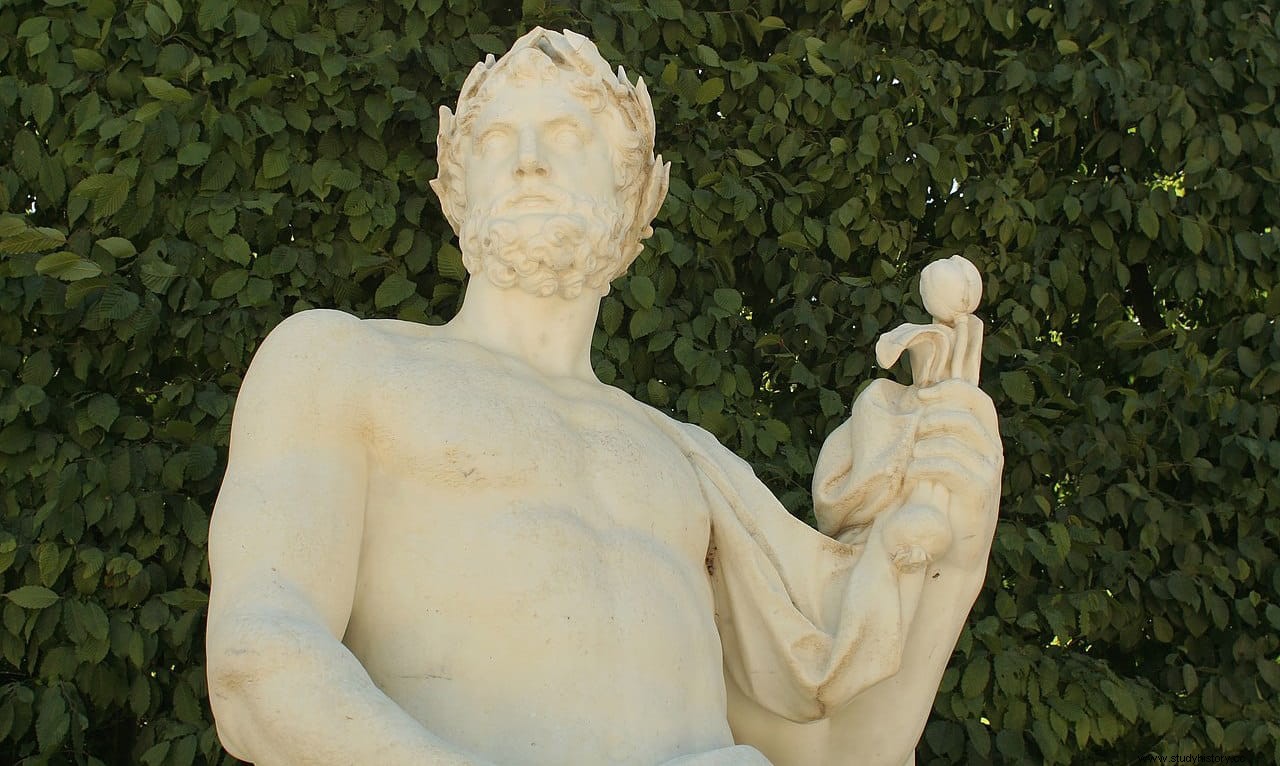
Andronicus also introduced some changes to adapt the work to Roman taste. He inflated the pathetic and dramatic effects, staying true to the structure and content of Homer's text, and rearranged its form making an artistic translation .
His great merit is having made a true creation from scratch of translation as a literary work (in fact, he is considered the inventor of translation as an art). And this despite the fact that he had no Roman epic tradition on which to base the language of his translation. The only inspiration for him were the annals preserved by the pontiffs, and the archaic religious songs.
The translation of the Odyssey he brought a completely new mythology to the Roman people who did not know Greek and therefore could not read Homer in his original language. This caused the progressive abandonment of a large part of the autochthonous Roman mythology, and contributed to the process of identification of the Roman pantheon with the Greek.
